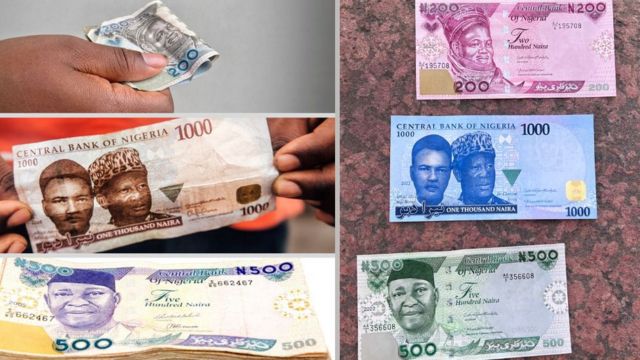
Naira Scarcity: Nigerians Groan Over Prices Of Food, Medicines
Amid soothing promises by the Federal Government to make the economy better, Nigerians seem to experience the opposite.
For starters, the naira scarcity horror that dampened yuletide fun has continued in the new year, making 2024 take off on a sluggish and nightmarish note.
Banks’ ATMs and PoS agents in many cities across Nigeria have run out of cash.
Citizens’ pains have also been accentuated by skyrocketing prices of foodstuffs, healthcare amenities, others goods and services.
But the CBN has assured that the currency scarcity crisis was being addressed and that Nigerians will be out of the doldrums soon.
However, economic experts have asked the monetary and fiscal policy wings to turn up their sleeves to wrestle down the raging inflation monster and foreign exchange volatility crisis which have to an unbearable increase in the cost of goods and services.
Shoppers and commuters are having a hectic time getting by without sufficient cash as banks continue to ration the national currency.
Various banks visited by Daily Sun after the new year were paying N5,000 across the counter, telling their customers to rejoice as it was a fair improvement over the N2,000 paid during the 2023 Christmas celebrations.
When asked when the scarcity horror will be over, many banks’ teller clerks said: “We can’t say. We pay as we get from CBN”.
Uloma Chukwuemeka, a mother of two kids and a security personnel, said: “I could not enjoy the Christmas season because of the economy was hard and the scarcity of cash did not even help matters because I could not see myself paying overboard at PoS terminals to collect cash. So, I decided to shift our celebration until after New Year but to my amazement, a lot of things have changed. For example, a derica (a measuring cup) of egusi, which sold for N2,000, now sells for N2,500”. I had wanted to buy a lot of things on the list but I ended up buying little”.
Ajibade Usman, an artisan who suffers from Asthma, stated that he cannot afford some of his medication due to the fact that the price of healthcare medicines has quadrupled.
A Seretide asthma inhaler manufactured by GSK was sold for N8,000 in April last year but is now sold for N70,000 (about $87). Research firm Statista said that 3 per cent of Nigerians have health insurance and this means that patients must find the money themselves to buy medications.
Pharmaceutical industry officials said the plunge in the value of the naira after the removal of currency controls in June has sent prices of new stocks rising. With British drugmaker, Glaxosmithkline moving from GSK controlled local operating companies in Nigeria to a third party direct distribution model, some industry officials stated that this could lead to mass exodus of companies leaving the country.
“We are worried that other multinationals will not follow the route of GSK. Although there is a rumor that other multinationals would want to leave via the same route. This is not good news for us”, President, Pharmaceutical Society of Nigeria, Prof Cyril Usifoh, said.
Speaking during a monitored programme, the Country Director for Nigeria, World Bank, Shubham Chaudhuri, tied the soaring inflation to limited supply of cash in the economy and CBN financing the fiscal deficit of the government through “Ways and Means”.
Chaudhuri said, “If you have money in the economy that is circulating and not enough is being produced, that is going to increase prices of goods and services. Secondly, if you go back to August of 2019, when the borders were closed, a look at the inflation series showed that there was an uptick as goods were flowing in, Nigeria right at that point, could not meet the demand from domestic supply and so one could actually see inflation proceeding upwards.
Obviously, as the naira has depreciated, has hurt the economy and increased prices because so many items are imported”
The National Bureau of Statistics (NBS) in November 2023, announced that the country’s annual inflation rose for the 11th straight month to the highest level in 18 years, adding pressure on the CBN to tackle the rise amid a worsening cost-of-living crisis in Africa’s largest economy.
Consumer inflation rose to 28.20 per cent in November from 27.33 per cent in October, as price rises for food and non-alcoholic beverages were reportedly the biggest drive of annual inflation during the month reported by NBS.
Food inflation, which accounts for the bulk of Nigeria’s inflation basket, rose to 32.84 per cent in November from 31.52 per cent a month earlier.
